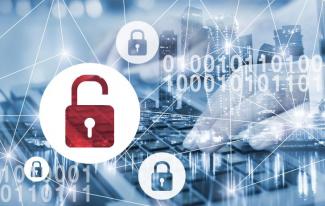
That privacy is under global threat with huge impact on individuals and corporate entities was a key inspiration for the theme of the third edition of the Dentons Rodyk Dialogue, a partnership between SMU School of Law’s Centre for Cross-Border Commercial Law in Asia and law firm, Dentons Rodyk.
Titled ‘Privacy in the Age of Social Media and Data Breaches’, Dentons Rodyk Dialogue 2019 held at SMU on 18 April 2019 attracted a turnout of 400 delegates from academia and industry, who gathered for a discourse on the pressing issues related to privacy (or the lack of!) which are prevalent in this current age of evolving technology, and the likely legal and regulatory resolutions.
The event was graced by Guest-of-Honour Dr Janil Puthucheary, Senior Minister of State, Ministry of Transport and Ministry of Communications and Information.
In his opening address, Dr Puthucheary spoke on the government’s multi-pronged approach to tackle challenges in the areas of cybersecurity, privacy, data breaches and social media, i.e. through the Personal Data Protection Act (PDPA), Cybersecurity Act, and Public Sector Governance Act (PSGA).


[Photo: Dr Puthucheary pointed out that public trust is key.]
He explained that the PDPA covers only personal data, takes a relatively light touch technical approach and is predicated largely on, information, consent provisions with several guidelines. The PSGA, however, covers all data within the public sector and not just personal data. It has very stringent controls at the periphery - the sharing public sector data out to the private sector and because of the inability for one part of government to fine the other part of government, it criminalises certain actions. The PSGA has a series of controls elevating the status of offences because the risk is much higher. For cybersecurity, there is a single Cybersecurity act that cuts across right from the private sector as well as the public sector.
Addressing the issues around data breaches that have made headlines in Singapore, Dr Puthucheary also concluded that “public trust is key to all of this”. “Without the public trust in the private sector, you are not going to have flourishing technology innovation which we have seen in the last few years. Without trust in the public sector, we are not going to deliver on our Smart Nation promises to transform Singapore using technology… Reassuring the public that we are taking this seriously and that we are able to intervene appropriately is going to be essential as we deal with data privacy, data security and cybersecurity,” he said.
The Dialogue also featured world-renowned privacy scholar Professor Anne Cheung from The Hong Kong University and Singapore's cybersecurity expert David Koh.

[Photo: Prof Anne Cheung discussing the legal challenges that society today faces with regards to data privacy.]
In her speech, Professor Cheung spoke on the legal challenges that society today faces with regards to data privacy, including those illustrated in the Facebook-Cambridge Analytica Scandal. She recommended a holistic legal approach involving data privacy, private law (such as consumer protection laws and competition law) and public law (including anti-discrimination laws and due process rights), having analysed orthodox consent-based approach to data privacy and pointing out that a robust data privacy regime can no longer afford to hinge on outdated notions of personal data because today, data is collected through networks, using techniques of prediction and manipulation.

[Photo: Mr David Koh pointed out that humans are most often the weakest link in a cyber-attack.]
Mr David Koh, who is Chief Executive of the Cyber Security Agency of Singapore, believes that “cybersecurity must be a nationwide effort”. While his Agency works towards strengthening the protection of Singapore’s critical infrastructure sectors, Mr Koh pointed out that humans are most often the weakest link in a cyber-attack and called for people, front-end users and corporations to take responsibility for cybersecurity. He urged corporations to view cybersecurity measures as an investment and a competitive advantage to assure their clients and customers that their data is safe.


[Photo: The Dialogue also featured a panel discussion with the speakers, moderated by Global Vice-Chair and ASEAN CEO of Dentons Rodyk, Mr Philip Jeyaretnam S.C.]
In his parting thoughts, Mr Gilbert Leong, Senior Partner in Dentons Rodyk's Intellectual Property & Technology practice group, emphasised the importance of individual responsibility in addressing the issues of data privacy, data security and cyber security. Much of the earlier discussion was on the role of external third parties such as government bodies and Internet service providers in adopting and promoting appropriate policies. However, Mr Leong pointed out that parents and educators also play a crucial role in teaching youths to use social media networks responsibly. He cautioned against overreliance on external parties and invited the audience to embrace self-help approaches in addressing the pressing issues.

[Photo: Dentons Rodyk’s Mr Gilbert Leong emphasised the importance of individual responsibility in addressing the issues of data privacy, data security and cyber security.]